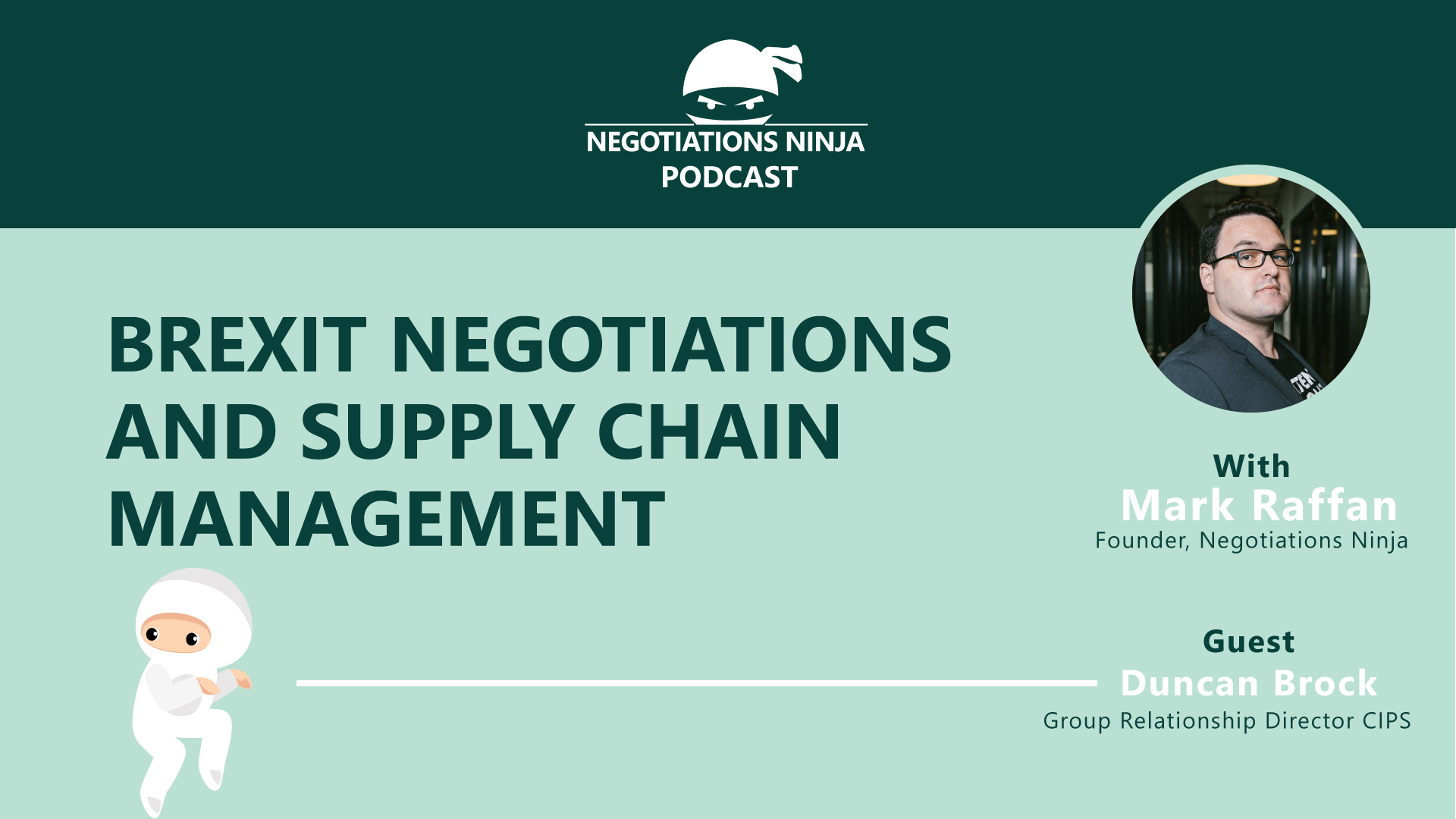Duncan Brock joins us to discuss the activities being undertaken by the UK and the EU as they try and get an exit deal signed. While we’re all having a hard time understanding the nuances and complexity of Brexit, Duncan is fully up to speed on how it’s affecting the UK’s economy, how people work, and the entire supply chain. This is a fascinating conversation on what the future for the UK and the EU looks like post-Brexit.
Duncan walks us through the history of Brexit starting from the 2016 referendum through to the current activities surrounding negotiating the deal to exit from the EU. The nuances and complexities of Brexit are further enhanced with the frustrating number of resignations and changes within government, negotiations with other EU leaders, and now the resignation of Prime Minister Teresa May.
What does it all mean going forward? What sectors are being hit hardest? How is stockpiling affecting the supply chain? Is a hard Brexit with no deal a possibility? This is a great conversation about a complicated negotiation with a big global impact.
Outline of This Episode
- [3:02] How Duncan started working at CIPS
- [4:58] A brief timeline of Brexit (2016–2019)
- [9:21] Who’s involved in the Brexit negotiations?
- [11:51] Applying Brexit lessons to future negotiations
- [16:25] How Brexit is impacting the supply chain
- [21:46] Can business leaders impact the negotiation?
- [23:26] Is October the line in the sand?
- [25:30] The big takeaways from Brexit
- [28:44] How to connect with Duncan
A brief timeline of Brexit
In June 2016, the UK voted to remove itself from the European Union (EU). Duncan believes that most that voted didn’t fully understand what they were voting for. In February 2017 the article 50 bill went through parliament and they set a timeframe for leaving the EU—by the 29th of March, 2019.
They continued negotiations and came to a withdrawal agreement between Europe and the UK, negotiated by the prime minister. But the UK parliament rejected the deal, resoundingly, three separate times. That led to a lot of internal negotiations. The prime minister had to go back to the EU negotiator and extend negotiations with a new deadline of October 31st, 2019.
It’s been messy, to say the least. The key negotiators have changed three times throughout the process. Secretaries, teams, and the parliament itself has changed shape. The only constant had been the prime minister. They haven’t had a consistency of approach because of this.
The EU has their heads on straight
On the flip side, the EU has had one negotiator the entire way through. The 27 countries of Europe have been united behind him. Europe has handled the negotiations well. The UK has been struggling because the prime minister had been going to other countries to try and get them to influence the negotiator.
But they stayed the course and the prime minister was sent back to their negotiator every time. They are consistent, well-organized, clear on their positions, and disciplined. Duncan notes that they’ve done a brilliant job trying to work their way through a difficult situation. The UK has been part of Europe for 40 years, so even coming to the original agreement is a huge step forward.
The impact of Brexit on the supply chain
The UK’s supply chain has been immensely impacted. The manufacturing, construction, and service sectors are all being hit with uncertainty. Companies don’t know what decisions to make about where to invest and they’re holding back. Manufacturing output is up, but only because people are stockpiling finished goods and raw materials. The cost of warehousing has gone up significantly. Unfortunately, the growth forecast is for lower activity in the economy.
If an agreement doesn’t go through, the UK leaves Europe without a deal and would revert to WTO rules. They’d be dealing with customs controls and delays at the ports. Those delays could ruin businesses. A 24-hour delay at the border can cause 11% of exporters to lose their contracts. Weeks of delays would see European countries stop sourcing from the UK. 70% of their food comes from Europe—you can’t replace that by buying locally from the UK (which is why stockpiling is happening).
Tariffs may be imposed on imports which will lead to a spike in inflation which may lead to currency fluctuations. Customers and suppliers have to negotiate through those changes. It’s had a much bigger impact than people expected or realized. Negotiating a withdrawal agreement has never been more important.
Businesses have been lobbying, holding conferences, and trying to wrangle the politicians. They’ve been pressurizing as much as they can. Politics in play are a detriment to the good of the country. If they don’t reach an agreement by the October 31st deadline, what will happen? Will they withdraw? Or try and stay part of the EU? Listen to the whole episode to hear Duncan’s thoughts—and what we can learn from the Brexit negotiation process.
Resources & People Mentioned
Connect with Duncan Brock
Episode Sponsor
- ProcureCon Contingent Staffing
- Code: NN-PCS-2019 for 25% off
Connect With Mark
- Follow Negotiations Ninja on Twitter: @NegotiationPod
- Connect with Mark on LinkedIn
- Follow Negotiations Ninja on LinkedIn
- Connect on Instagram: @NegotiationPod




